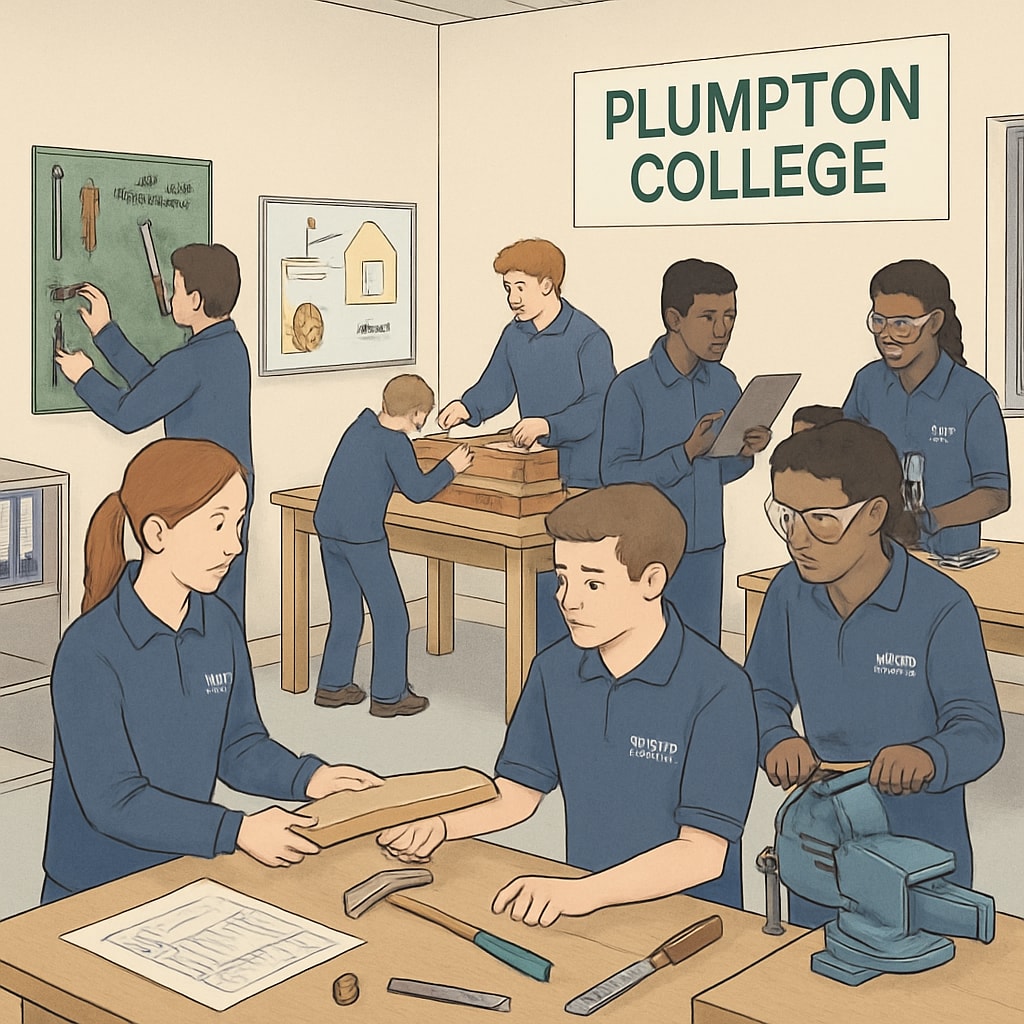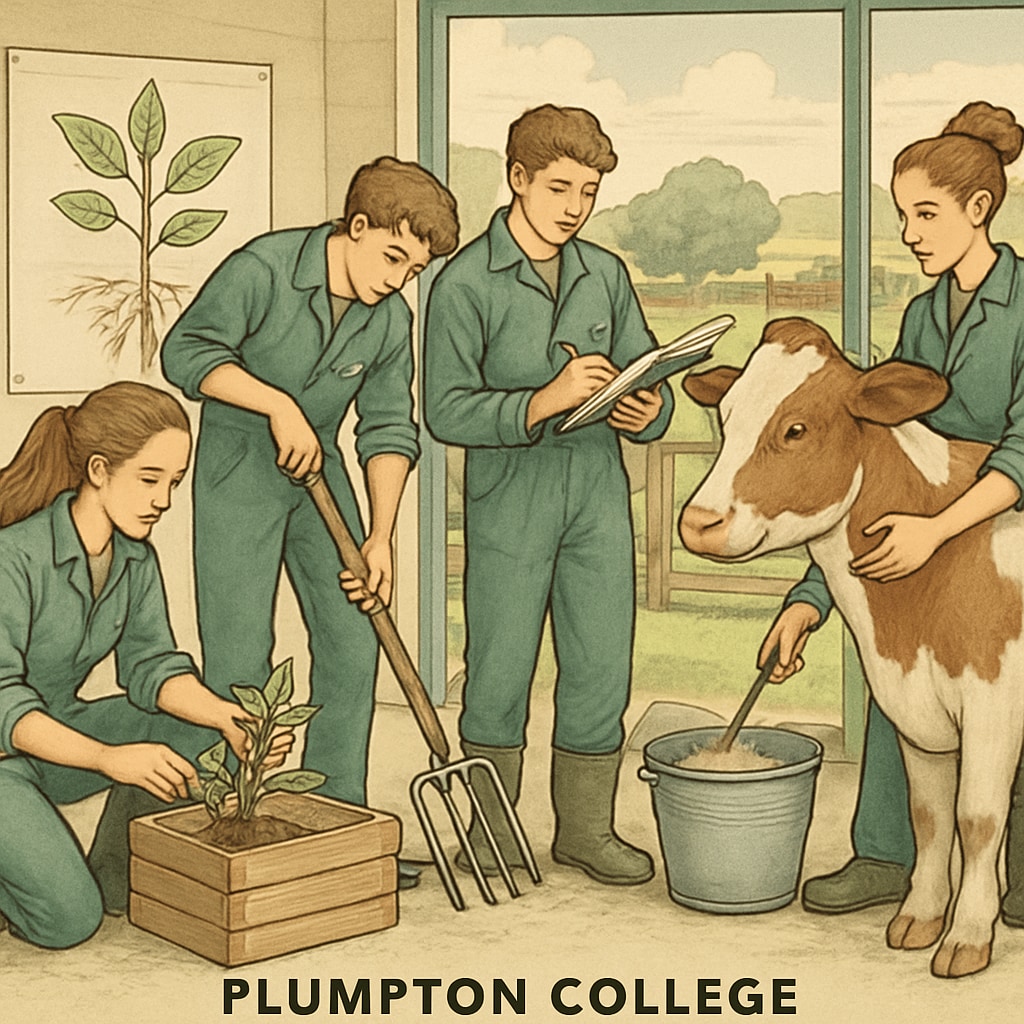For guardians seeking a balance between academic growth and career-oriented education for 14-year-olds, Plumpton College offers a unique opportunity. Combining traditional GCSE exams with vocational training, the challenge lies in ensuring that students excel academically while preparing for future career paths. This article provides actionable strategies to harmonize both priorities, ensuring young learners can thrive in both academic and practical domains.
Why Plumpton College Offers A Unique Educational Path
Plumpton College specializes in vocational education, particularly in areas such as agriculture, equine studies, and environmental conservation. For 14-year-olds, this type of hands-on learning can be a transformative experience, allowing them to explore their interests and develop practical skills early in life. However, balancing vocational courses with the rigorous demands of GCSE exams requires careful planning and support from guardians.
One key advantage of Plumpton College is its focus on real-world applications. This practical approach can help students build confidence and discover their passions. However, guardians must ensure that the foundational academic skills required for GCSEs are not neglected. For example, subjects like English and Mathematics remain crucial for future career mobility and higher education opportunities.

Strategies for Guardians to Balance GCSE Preparation and Vocational Education
To successfully navigate this dual path, guardians can adopt several strategies:
- Create a Structured Schedule: Allocate specific study times for GCSE subjects alongside vocational training. This ensures that academic preparation does not take a backseat.
- Leverage Support Resources: Plumpton College may offer tutoring or additional resources for GCSE subjects. Guardians should inquire about these opportunities.
- Encourage Holistic Learning: Help students connect their vocational studies to academic subjects. For example, agricultural science can complement biology, while equine studies can tie into physical education.
- Monitor Progress: Regularly check how students are performing both academically and practically. Communication with teachers and tutors is vital.
- Plan for Exams: Create a revision timetable well ahead of GCSE exams to avoid last-minute stress.
By implementing these strategies, guardians can provide balanced support, ensuring students are well-prepared for both their GCSEs and their vocational pursuits.

The Role of Interests and Strengths in Educational Planning
One of the most effective approaches to balancing academic and vocational goals is to align educational choices with the student’s interests and strengths. For example, students passionate about animals may thrive in Plumpton College’s equine studies programs, while those interested in sustainability may excel in environmental conservation courses. Guardians should identify these passions early and use them as a foundation to motivate academic and vocational success.
Furthermore, understanding a student’s strengths can help allocate time effectively. If a student struggles in particular GCSE subjects, guardians can prioritize those areas while allowing more independent exploration in vocational studies. This personalized approach helps students feel supported while fostering their independence.
Setting Long-Term Goals for Academic and Career Success
While balancing GCSEs and vocational studies is challenging, it is also an excellent opportunity to set long-term educational and career goals. Guardians can guide students to think about their future aspirations and how their current choices align with these objectives. For example:
- Higher Education Pathways: Some Plumpton College programs can lead directly to higher education in specialized fields, such as agricultural sciences or veterinary studies.
- Career Readiness: Vocational courses provide practical skills that can lead to immediate employment opportunities after graduation.
- Skill Development: Balancing academic and vocational education helps students develop time management, problem-solving, and adaptability skills.
By focusing on long-term goals, guardians can help students see the value in maintaining both academic and vocational commitments, making the journey more meaningful and rewarding.
Readability guidance: Use short paragraphs and bullet points to summarize key information. Incorporate transitional phrases such as “however,” “in addition,” and “for example” to ensure smooth flow. Maintain an average sentence length of 12–16 words, limiting long sentences to 25% of the text. Avoid excessive passive voice and strive for clarity in all sections.


